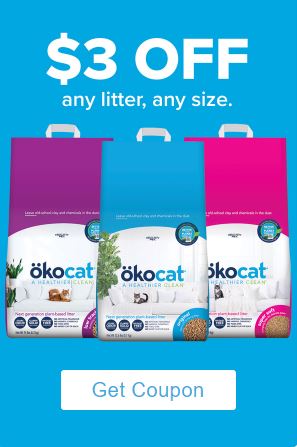
Homemade vs. Store-Bought Dog Food: Pros & Cons
Image Source: https://www.freepik.com/free-photo/close-up-adorable-pet-eating_134231313.htm
Dogs are more than pets; they are adorable, precious companions or even part of the family. The many roles dogs play in the lives of humans make them indispensable additions to a home. It is only right to give them nothing but the best, especially food and nutrition. Knowing this, pet owners often stand at a fork in the road in choosing between homemade dog food and store-bought options. Each approach comes with advantages and drawbacks, so pet owners need to evaluate what best suits their dog's nutritional needs. If you’re a dog owner and need help choosing between homemade and store-bought dog food, read below to help you decide.
Understanding Nutritional Needs
Before exploring the pros and cons of homemade and store-bought dog food, knowing what constitutes a balanced diet for dogs is vital. A reliable reference for your dog’s nutritional needs can help you know what their ideal dietary reference intake is. Dogs need proteins, carbohydrates, fats, vitamins, and minerals – like humans do. Different dog breeds have varying nutritional requirements based on size, age, and health conditions. A mini golden retriever may need different proportions of nutrients compared to larger breeds like its golden retriever parent. With this knowledge in tow, you’ll make the most of whichever choice you make.
Pros of Homemade Dog Food
Crafting homemade food for your dog is like cooking for a loved one. The process is done with love and natural ingredients for optimal nutrient absorption. Making meals for your dog lets you know what your dog is consuming, so without further ado, here are other pros of homemade dog food.
Quality Control and Freshness Guaranteed
Having control over the quality of ingredients is one strong reason why meals for doggos should be prepared at home. You get to pick fresh vegetables, lean meats, and whole grains and measure the portions to be added for balanced nutrition. Since you are confident that the food your furry buddy eats has no preservatives, you are assured it’s safe for long-term consumption. A healthy, controlled diet supports weight management and increases energy levels, leading to more play time and activity for your dog..
Variety in Diet
Homemade dog food allows for creativity and diverse meal options. There’s more than one way to prepare your ingredients, and you can even cook them. Break the monotony and boredom of the same old food by rotating recipes and ingredients. Just like humans, dogs may get tired of eating the same food, so toy with the idea of vegetable and meat alternatives. Try using celery or cabbage as an alternative to lettuce. Switch between chicken and turkey, pork and beef, or white fish and salmon, or use one as an alternative to the other. Letting them be adventurous with the taste and smell of their food leads to a better meal experience and fewer deviations in nutrient intake.
Cons of Homemade Dog Food
Looking at homemade dog food objectively, it does have its drawbacks and challenges. Sufficient knowledge about canine nutrition is warranted. Without proper research, your dog's nutrition may be deficient due to omitted nutrients. Below are other concerns to watch out for when making homemade food for your canine friend.
Time and Effort Commitment
Yes, you’ll need to devote time and effort to the consistent preparation of dog meals. If you have several responsibilities to juggle at work and home, this option is not viable. Preparing, cooking, and cleaning can take a considerable slice of your daily hours pie.
Risk of Nutrient Imbalance
It’s not only nutrient deficiency we’re referring to but also megadosing or overconsumption of certain nutrients – both are bad for dogs. Nutrient imbalance often manifests late or elicits symptoms similar to other conditions. Consulting with a veterinarian or a pet nutritionist is a preventive approach to form a well-rounded meal plan.
Advantages of Store-Bought Dog Food
The primary draw of commercial dog food is its convenience. These store-bought products have high availability and formulations geared for balanced nutrients. With the right choice of store-bought dog food, you can ensure proper nutrition for your furry buddy. Below are other pros of commercial dog food worth knowing.
Designed for Consistency
Most store-bought dog foods adhere to established standards set by regulatory bodies to meet necessary health regulations. The labels and packing of commercial dog food provide dog owners options that suit their canine pets’ ages and sizes. The contents of these commercial products are manufactured with consistent nutrient levels to ensure adequate nutrition and a reliable diet.
Formulated for Specific Breeds
Dog owners can find commercial dog foods tailored for specific dog breeds and dietary needs. Aside from size and age, manufacturers also formulate food for small breeds, puppies, or dogs with sensitive stomachs or known allergies. This extensive range of specialized options allows dog owners to choose products that meet their pet’s health needs sufficiently.
Drawbacks of Store-Bought Dog Food
Commercial dog food has its share of drawbacks and concerns that dog owners must ponder. Since the products that hit the shelves are sealed, it is impossible to know the quality of the ingredients used. Some brands may use fillers and artificial preservatives, which do more nutritional harm than good. Before picking up a commercial dog food from a store, homeowners should know some of its disadvantages.
Unreliable Ingredient Transparency
Remember why we used “most” and not all commercial dog foods adhere to established standards earlier? This is because not all brands are upfront about their ingredient sourcing. Many store-bought food packaging contains vague and fancy terms like “natural,” “organic,” “GMO-free,” “meat by-products,” or “animal digest,” leaving questions about the quality and type of ingredients included. This unreliable transparency can make it challenging for owners to ensure they are providing the best options for their pets.
Unregulated Marketing Gimmicks
The competition is so stiff among commercial dog food manufacturers that they often employ gimmicks to get ahead, but at the cost of misleading information. Some may not declare possible allergens or additives that may trigger reactions. Others may incorrectly declare nutrition information, which may cause other health problems to surface.
Choosing between homemade and store-bought dog food entails careful consideration of your pet's dietary needs and your lifestyle. While homemade food provides a sense of ownership and control over quality, commercial products offer convenience and consistent formulation with a level of assurance. By analyzing the features of both options, you can tailor your decision to choose one over the other or combine the two. What matters is that you guarantee the best health outcomes for your beloved companion.











 email us
email us